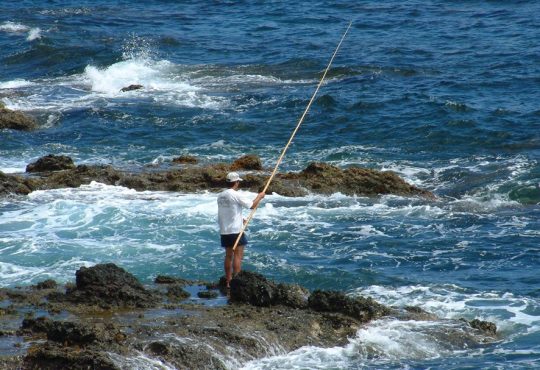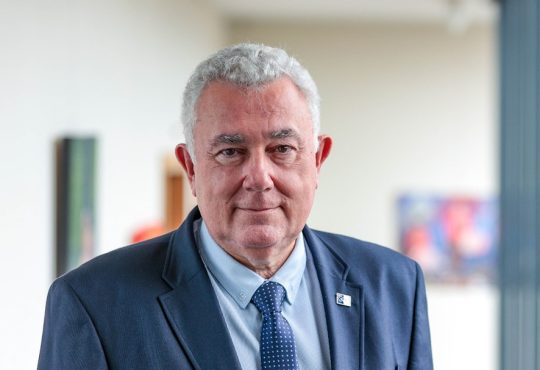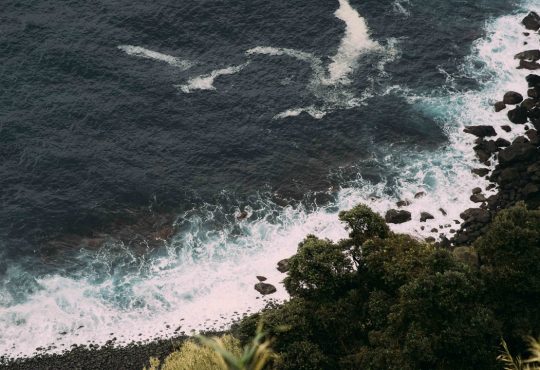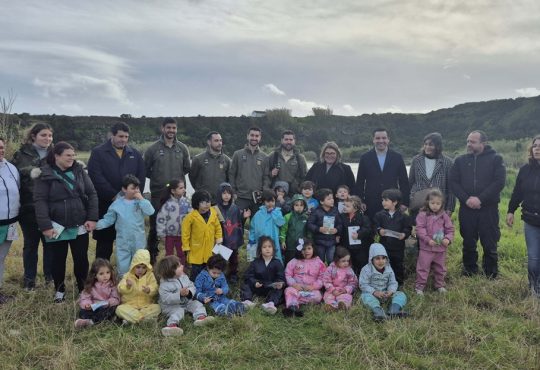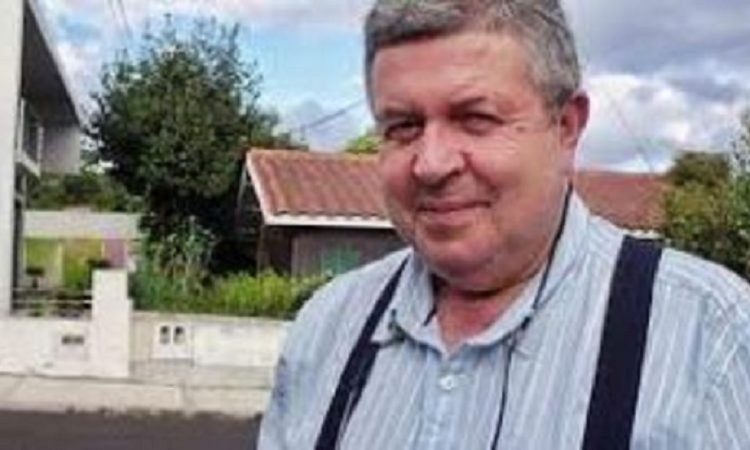
With angels and demons
With goodness and seduction
Deka Purim in Rio Virando Mar
If science draws the wave and poetry fills it with water, as the Portuguese poet Teixeira Pascoaes once wrote, the poetry of Marcolino Candeias is a poetic sea containing some of the most significant themes of the literary creation of the Azores. It is refined poetry, rich in metaphors, and grounded in the experiences, the language, the pain, and the hope of a place, the Azores, and its people. In each poem by Marcolino Candeias there is the sweat of silence, the shadow of freedom, the echoes of justice, the commitment to solitude, and the dimension of solidarity. A pure poetry that leads the reader to the pinnacles of emotion and the heights of thought, poetry that sings the humanism of our human condition.
Born in the parish of Cinco Ribeiras on Terceira Island, the literary creations of Marcolino Candeias brought together by the Azorean Institute of Culture are undoubtedly a remarkable literary corpus for the Azores and poetry in the Portuguese language. He is known for his concise, allegorically refined poetry, full of the necessary nuances and subtleties that would allow it to be published, at a time when the most flourishing ideas were stifled by a dictatorial political system that produced poor people and emigrants. He began publishing in academic journals and was one of the voices of the Glacial movement, which forever marked the creativity in this beautiful archipelago. He carried with him “the bird of words,” and exhaled the “tear of invented happiness.”
Throughout his early poetic creations, Marcolino Candeias, was immensely concerned with the situation experienced in the archipelago and the entire country of Portugal because, as T. S. Elliot wrote, “all true poetry is a vision of the world.” He invoked and still invokes the desire to build another society in each reader. At a time when “the poet is a guest in his house,” his poetry asks us to look, with the eyes of one who wants to see what surrounds us, that is: “reality on the road / begging / brazenly.” Or to a world where freedom was a dream, putting the boy (all boys) in “punishment all morning / for writing LOVE / on the student desk.” Concerns and experiences that, unfortunately, did not stay in one space and time; still, today, the poet’s words are pertinent. Even today, our democracy (all democracies) are marked with the stains of poverty and circumscribed freedom. Those who dare to write their thoughts continue to be punished. Unfortunately, there are still today, as the poet wrote, “words to be kept in the pantry.”
This collection is still a constant hymn to the island and the islander. Here places, people, and experiences are sung, as Samuel Johnson wrote: nothing is useless for the poet. The islander feeling, living the world inside the island, where “the birds have orchestras,” where despite the island ending right there, despite the desire of departure being in our idiosyncrasy, one stays in these volcano peaks, one has dreams. One builds the possible utopias: “one stays / as one who goes to the horizon / and returns.” One counts, in the sublimity of poetic language, the “steps of parallel days,” the insular daily life of the ” farmer’s face / with eyes full of stars”; the echo, sometimes liberating, sometimes creasing of ” who has only sea”; the delusions of the “transparent planter of lives.”
He is a poet of the world because he is a poet of his land and city. In the tone of an elegy, his Ode to Angra, my city is one of the most remarkable and moving songs about a city that one can read. Containing a forcefulness that oscillates between realism and utopia, we breathe in the beauty of “the little capital with an apron / traced in the heavy hand of hospitality”; we stroll along the Cais da Alfândega where “your whole universe fits”; we visit the memory that goes beyond Pedro IV, to be the collective memory of a people, including “your marginals / that of / your unfortunates”; we recall the heroism of a city of “enchanting fog” that not only praises the historical effects but above all is confessional “in the silence of so many sorrows.” This Ode sings of the “endless metropolis of adventures” in a tone equal to itself, the city of the world that is also the city of the aromatic wine, the limpets, the chalice of burning water, and the batter “sweated in the bowl of your face.” The poet sings of his/our Angra do Heroísmo in its fullness. (read from the poem)
The islander, in his daily life, is ever present in his poetry with transcendent poems that distinguish the mythical of an Atlantis lived between staying and leaving, the telluric force that comes from the challenging weather felt on the skin of those who inhabit these pieces of basalt in the middle of the Atlantic and the strength of a visceral humidity that penetrates the body and soul. In memory of Manuel Coelho Lopes, my father, master, and farmer of poetry; Last Conversation with João Vital and Chico Veríssimo, among other poems, Marcolino Candeias explores, with highly metaphorical language and bold, truthful descriptions, those who spent a life scavenging a day to day, daring, “to violate mediocrity and dream with all your strength beyond your means.” The smallness of the island contained, in its way, the world’s vastness. The islander, even with hope hanging on a leash, almost permanently postponed, was leaving for the eternity of the gods: “without rancor for the life that gave you nothing,” during a time when they were: “impossible your dreams for so much poetry.”
The Brazilian poet Carlos Drummond de Andrade was known to have said that all of life and the drama of our lives relates to the simple fact that “our capacity to love is limited, but love is infinite,” Marcolino Candeias, throughout his work, like all poets, sings of love, and in a memorable way love for his cachaça, his Deka. Aqui não tem Sabiá is an excellent homage to love, paraphrasing Cora Carolina, and changing dreams to stay in the life of the one you love. In a perfect symbiosis of languages and cultures, of concepts and taboos, of the miscegenation between the worlds we live in and those we invent, the poem runs through the arteries of love between the “damned joy” of the Brazilian spirit and the stern character of “those who were born on the sea.”
The writer Salman Rushdie wrote that: “a poet’s job is to name the unnameable, point out frauds, take sides, start arguments, shape the world, and stop sleeping.” Marcolino Candeias’ work is full of forays into the world of social justice. I would say that in each poem, there is a cry for us to go beyond what is comfortable, to bring to our cosmos and our lives the sense of justice, human brotherhood and sisterhood, and the colors of the world. Natália Correia, one of Portugal’s best-known poets of the later part of the 20th century, said that all good poetry “is simultaneously influential and influencing.” Of all the poems, the Brief Speech to My Friends, influenced by the readings, the experiences, and the ideology of the poet, marked by a luminous vision of our presence on this planet, contains the making of a piece that interweaves some of our deep concerns of the contemporary world. In a universal language, where action and feeling percolate, the poet fiercely confronts us with some of the obsessions of modernity: “we who no longer even need souls / To be human and immortal.” (read the poem)
It has been said in various places and times that the Azores would not be the same without emigration. Azorean poetry would not be the same without the stories of those who left for the Americas. Several poets have dipped their pen in the ink of emigration. Marcolino Candeias did it masterfully. The allusions to the “amariquianes” and the “calafonas” in particular are all over his poetry. The Letter from Joe Simas, Poema da Saudade Ardente, and Novas da Ilha, each in its way, are representative of the power of emigration in Azorean letters. And while it is true that the archipelago no longer lives: “dreaming in the wine of news and the well-trodden garlic of distance,” it is no less accurate that our relationship with the Americas was essential in our archipelagic history and has marked us deeply. Marcolino Candeias also knew how to use the words of our emigration that little by little have left their mark on the rich idiomatic expressions still used on the islands. These were experiences that marked us forever and that the poet always knew how to respect and cherish, understanding like no one else the weight of an emigration, mirrored in a letter from an emigrant (of all emigrants) that: ” contained no periods or commas and never settled down in his adventure.”
What isn’t included in this collection is the poetry of the oral histories of Joe Canoa, a character who had lived in California and returned to his land, his island. The character Joe Canoa is one of the best tributes that the emigrant has ever received. Created by Marcolino Candeias, some are recorded in audio or amateur videos, with a minimal quality. Above all, they are engraved in the memory of those who heard them, told as only the poet could say them, in unimaginable evenings in California, Canada, and the Azores. For the character Joe Canoa, who nurtured a unique friendship with Frank Soisa, the world revolved around the island; spaces were measured by the tape measure of our geography, such as: have you ever thought of a place so big that it could fit in our Parça Velha? From the Resurrection of Lazarus, which takes place in a parish on the island of Terceira, to the Life and Death of John F. Kennedy (sacred in the image of the Azorean emigrant), the sublime description of an American soccer game – the jogo do malão, Azorean emigration intertwines with the experiences of the islands in a perfect bond and indicator of the influence that emigration had on Azorean rural life. A clear and unmistakable clue that the poet, with his vast experience of the world beyond the archipelago, had an unmatched tenderness and respect for the inhabitants of these islands, those who remained and those who left.
John Fitzgerald Kennedy, the President of the United States, who poet honored, as stated, with a story by Joe Canoa, wrote: “when power drives men to arrogance, poetry reminds them of their limitations. When power narrows man’s areas of interest, poetry reminds him of the richness and diversity of his existence. When power corrupts, poetry cleanses.” For these and other reasons, one must read Marcolino Candeias. One must savor the words and syllables and their magnetic charge when they come together through homogeneity or diversity when they come together and go astray. We must internalize the historicity of words and how the poet calls our attention to how they have been used in moments of certainty and doubt. For those who speak and read Portuguese, I invite you to enjoy the musical movement of his poetry: the rasping, the fluidity, the euphoria, the enlargement, the strike, the visceral, in short, the staginess of each poem.
My Angra Brother (as I called him, and he- my California Brother) is in this collection in its entirety, with the verticality he always had in his poetry and life. Because poetry is the child of disturbing suggestions, as the Portuguese poet Eugénio Andrade wrote, in Marcolino Candeias’ poetry, you learn how rainbows arrive and why they disappear. Friedrich Hebbel wrote: in poets, humankind dreams. With the poetry of Marcolino Candeias, there is a constant reminder to live committed to the perpetual construction of a better world.
*from the poem A Daily Worker by Marcolino Candeias




